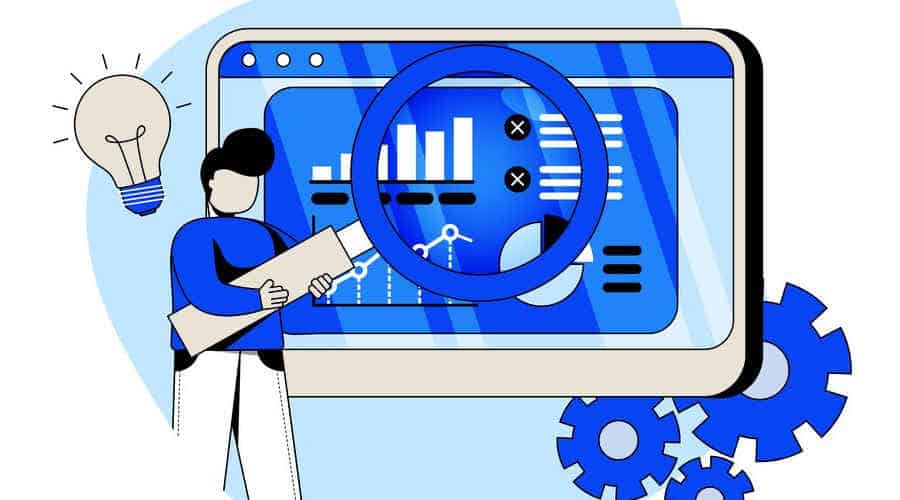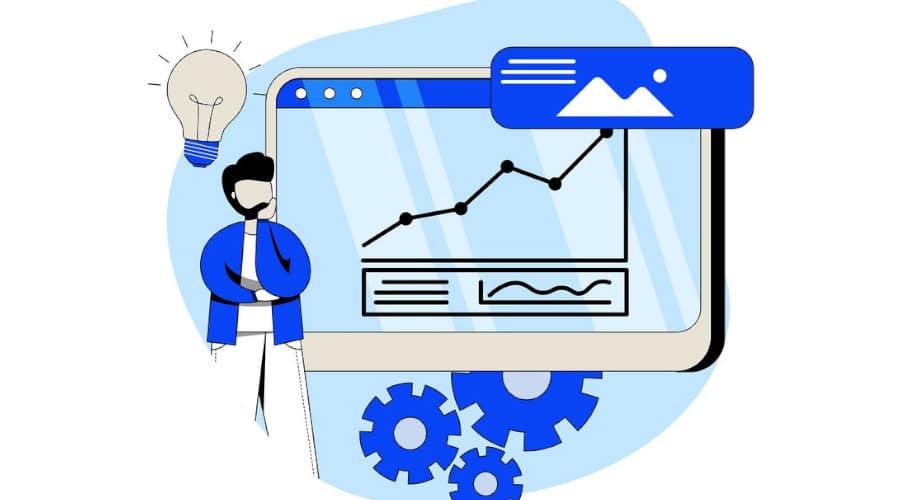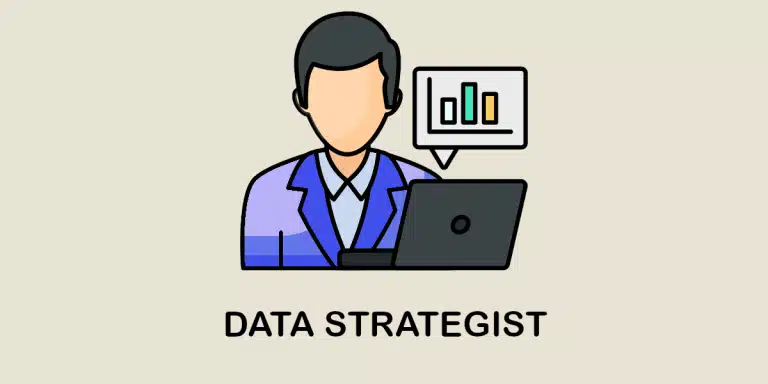The Data Strategist is a professional responsible for developing a data-driven strategy within a company. Find out all you need to know about this fast-growing role!
Just a few years ago, data was perceived as a mere asset by companies. The benefits of analysis were considered useful, but not essential.
Over time, however, data has taken on central importance in all business sectors. Organizations now realize the value of data-driven decision-making.
It’s no longer a matter of simply analyzing the data at hand, but of using it to achieve concrete goals. And this requires a carefully thought-out strategy.
At the same time, data protection laws such as the EU’s GDPR and cybersecurity threats impose strict governance. To meet these challenges, a new profession has emerged: the Data Strategist.
What is a Data Strategist?
Given the new importance of data, organizations can no longer rely solely on data analysts and technicians: an interface between the technical teams and the various departments is needed, to enable everyone to focus on their respective missions. This is the role of the Data Strategist, a professional charged with leveraging available data to provide actionable information for decision-making.
To design a strategy aligned with the organization’s needs, he or she works closely with management teams, marketing professionals, data scientists and analysts.
What is the role of a Data Strategist?
First and foremost, the Data Strategist must understand the organization’s objectives and challenges, and work with all stakeholders to analyze business needs and identify areas where data can add value. Their role is then to collect, organize and analyze the relevant data.
A wide variety of tools and techniques are used to extract useful information, enabling in-depth analysis to uncover trends, patterns and insights for informed decision-making.
It is precisely from this information that the expert develops business strategies. This may include optimizing operations, developing new products or services, or enhancing the customer experience.
The strategist also defines key performance indicators (KPIs) to measure the effectiveness of his plans and assess their impact on objectives.
He must then present his findings and recommendations clearly and concisely to the organization’s senior management. To achieve this, they use data visualizations, reports and presentations.
On a daily basis, Data Strategists also monitor technological trends and advances in the field of data analysis.
They evaluate new technologies, tools and methodologies to determine their applicability to the organization and recommend improvements. This is an essential task if you want to incorporate the latest innovations into your strategy.

What skills does a Data Strategist have?
A Data Strategist must master data analysis tools and technologies. This may include programming languages such as Python or R, databases, statistical modeling, DataViz software and Machine Learning libraries.
A sound knowledge of data mining and modeling methodologies also helps to reveal the full potential of the data at hand.
As a bridge between analysts and business teams, he or she must also be able to communicate effectively and present complex information clearly and concisely.
This means being able to translate the results of data analysis into simple, understandable terms for non-experts.
Finally, the heart of this profession is problem-solving. The strategist therefore needs analytical skills and an agile approach, adaptability to change and creativity.
The challenges facing the Data Strategist
The job of Data Strategist is an exciting one, but one that involves a number of challenges. Firstly, management is becoming increasingly difficult as the volume of data explodes.
It is necessary to collect the most relevant data, clean it, organize it and validate it to guarantee its usefulness and reliability.
Confidentiality and security are also major concerns. Data must be protected against leaks and cyber-attacks.
What’s more, the field of data analysis is evolving very rapidly, and the Data Strategist must be constantly on the lookout to ensure that he or she doesn’t miss out on any major advances. This requires planning and good change management.
Data Strategist vs Data Analyst
Data Strategists and Data Analysts occupy two very distinct roles. The former develops and implements a strategy aligned with the company’s objectives.
They are responsible for data governance, management and security. They also work with stakeholders to establish a data-driven culture.
Analysts are primarily responsible for data collection, processing and analysis.
They identify patterns and trends for decision-making, and create visualizations to communicate their findings.
The Data Strategist may therefore take charge of data analysis tasks, but the Data Analyst does not have the same responsibilities as the Strategist.

The evolving role of the Data Strategist
The Data Strategist is playing an increasingly important role in companies, and the profession is evolving with the times.
The Covid-19 pandemic has accelerated the digital transformation of organizations, massively increasing the demand for experts.
At present, there are far too few experts in the field. At the same time, the skills required have diversified.
There are now three main profiles of strategists. The first category is responsible for leading an organization’s AI and data transformation, in order to achieve strategic objectives.
This role directly covers the responsibilities of Chief Data Officer or Chief Analytics Officer, and notably involves defining priorities and building a culture within the company.
For their part, the second profile is responsible for translating strategy to the operational level. They must help build a model and establish robust data governance.
Finally, the third type of Data Strategist works with the technical teams to deliver Data Products. Their priority is the success of a specific project or data product.
He/she manages requirements, identifies demand for new functionality, assesses feasibility, defines priorities for developers, and promotes the product internally and externally.
Over the next few years, new Data Strategist specializations will emerge with the incorporation of additional skills. These may include data management or data governance.
Conclusion: Data Strategist, a key job in the Big Data era
To fully exploit data and the information it contains, the expertise of the Data Strategist is essential.
These professionals master both the technical aspects of data analysis and their company’s field of activity, enabling them to design a strategy tailored to their needs.
To acquire the necessary skills, choose DataScientest. Our Data Analyst, Data Scientist, Data Engineer, Machine Learning Engineer and Data Product Manager training courses will enable you to become an expert.
You can learn to use the Python language and its Data Science libraries, Dataviz tools and Machine Learning techniques.
Similarly, our Power BI training course enables you to master this business intelligence solution in just 5 days, with PL-300 certification at the end.
All our training courses can be completed entirely remotely, and our state-recognized organization is eligible for funding options Discover DataScientest now!










